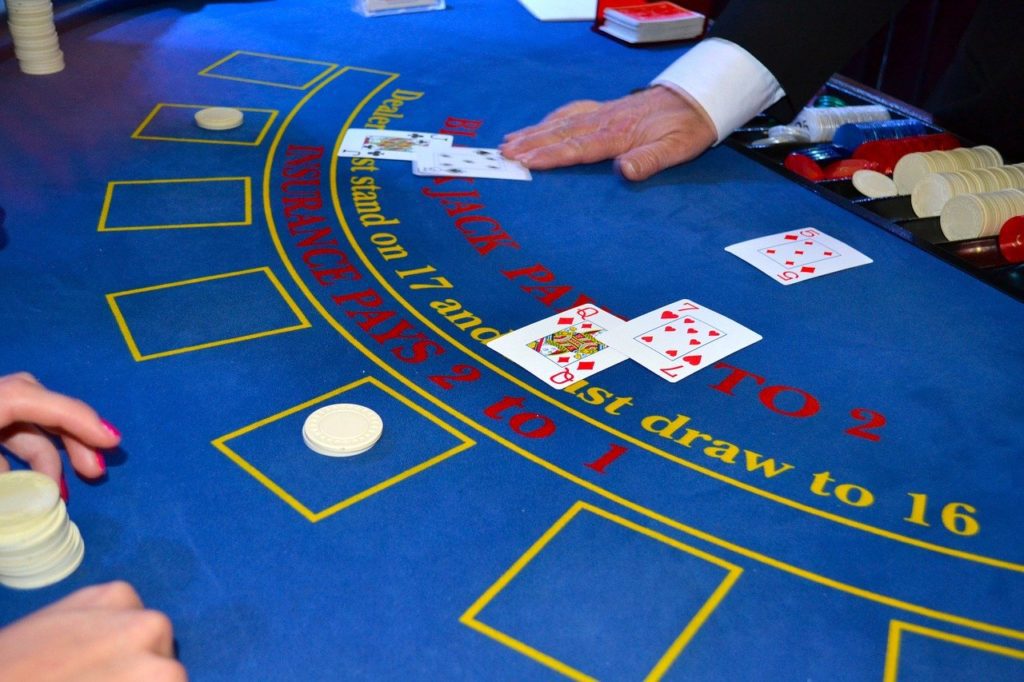Blackjack is a game where knowledge and strategy can significantly influence outcomes. Unlike many casino slots that rely purely on luck, blackjack offers players a measurable edge when decisions are made thoughtfully.
This article outlines 10 practical strategies to help you make smarter decisions at the blackjack table, reduce the house edge, and increase your chances of walking away with better results.
1. Master the Basic Strategy
The foundation of successful blackjack play is understanding the basic strategy. This set of rules tells you when to hit, stand, double down, or split based on your hand and the dealer’s upcard. Many platforms offer visual strategy charts for practice, allowing users to see the effects of different moves in real-time.
For example, players who gamble on Moonbet and other blackjack casinos ensure that they allow them to study hands and outcomes openly, testing strategies while understanding exactly how each decision impacts the odds.
2. Always Split Aces and Eights
Splitting aces and eights is widely recognized as a crucial move in blackjack. Aces give you two chances to hit a 10 or a face card, creating the potential for two strong hands instead of one weak one.
Eights, which total 16, are considered one of the worst hands to keep together, so splitting them turns a disadvantage into an opportunity. By making these splits consistently, you increase your chances of improving both hands and reduce the likelihood of busting.
3. Avoid Splitting Tens and Fives
While splitting is often beneficial, there are exceptions. Pairs of tens give you a total of 20, one of the strongest hands in blackjack, so splitting them would waste a solid position. Similarly, a pair of fives totals 10, which is ideal for doubling down, not splitting.
Mismanaging these hands can significantly reduce your expected value over time. Understanding when not to split is just as important as knowing when to split, and sticking to these rules improves long-term results.
4. Double Down on 10 or 11
Doubling down allows you to increase your bet when the odds favor you. When your hand totals 10 or 11, and the dealer shows a lower card, doubling down can maximize potential winnings. This strategy is effective because your chances of achieving a strong total are high.
It’s essential to consider the dealer’s upcard and your own risk tolerance, but using this technique wisely ensures you maximize the benefits of favorable situations without unnecessary exposure.
5. Avoid Insurance Bets
Insurance bets may appear tempting, but they generally favor the house. Unless you are counting cards and know that the deck contains a disproportionate number of tens, taking insurance reduces your expected value.
Statistically, insurance is a side bet with a high house edge, meaning it rarely benefits the player in the long run. Staying disciplined and skipping insurance bets preserves your bankroll and keeps your focus on decisions that genuinely affect your odds at the table.
6. Manage Your Bankroll
Effective bankroll management is essential for sustained blackjack success. Set a budget for each session and stick to it, ensuring that individual bets are a small percentage of your total funds, commonly 1–5% per hand.
Avoid chasing losses, as this can lead to poor decision-making and increased risk exposure. Pace your play and adjust bets according to your bankroll, so you maintain control over the session and reduce stress.
7. Learn and Adjust to Table Rules
Not all blackjack tables are alike, and rule variations can influence strategy. Key differences include whether the dealer hits or stands on a soft 17, the number of decks in play, and doubling restrictions.
Being aware of these rules before betting allows you to adjust your strategy accordingly. Minor differences can have a surprisingly significant impact on your expected returns, so reviewing table rules and adapting your play ensures that your decisions remain optimized for each specific environment.
8. Practice Regularly
Consistent practice is one of the most effective ways to improve at blackjack. Using online simulators or free practice tables helps you internalize the basic strategy and learn to make decisions quickly and confidently.
The more you practice, the easier it becomes to recognize the optimal moves for each hand. Practicing also allows you to test advanced techniques, such as splitting or doubling down under various conditions, giving you experience without risking your bankroll in real-money sessions.
9. Stay Focused and Avoid Impairment
Blackjack demands attention and clear thinking, and even minor lapses in judgment can be costly. Alcohol or distractions can impair decision-making, leading to mistakes and unnecessary losses.
Maintaining focus allows you to follow strategy accurately, make consistent decisions, and respond appropriately to dealer upcards.
10. Understand the House Edge
Even with a perfect strategy, the house maintains a slight edge. Knowing the expected returns and limitations of the game helps set realistic expectations and encourages responsible play. Awareness of the house advantage ensures that you make decisions strategically rather than emotionally, preserving your bankroll and enhancing enjoyment.
Conclusion
Winning consistently at blackjack relies on a combination of knowledge, strategy, and discipline. Regular practice and awareness of table rules reinforce these skills, while avoiding traps like insurance bets preserves your edge. Applying these 10 strategies thoughtfully helps reduce the house advantage and positions you for smarter, more controlled gameplay.



